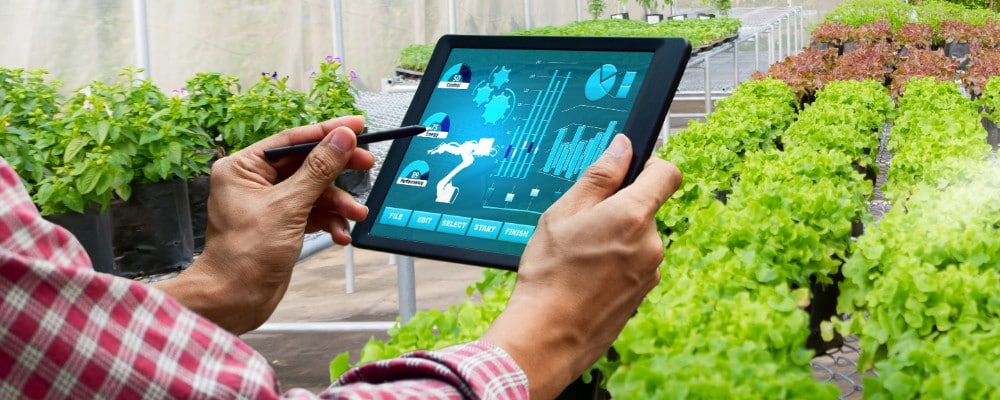1.3 billion tons of food is wasted annually. With customers more concerned about sustainability than ever before, retailers in the business of providing highly perishable foods like produce and meat to consumers find themselves in a position where they need to strengthen sustainability efforts and combat food wastage. This is where artificial intelligence (AI) and machine learning (ML) solutions can help.
AI and ML not only help fresh retailers reduce their environmental footprint through waste reduction, but the technologies allow these retailers to respond to market conditions in real-time and offer more personalised assortments, resulting in more efficient and eco-friendly supply chains.
Here are three ways AI and ML can enhance sustainability for fresh retailers.
Waste reduction
Roughly one-third of food produced for human consumption is wasted, which releases approximately 3.3 billion tons of carbon dioxide into the atmosphere.
By integrating merchandising and supply chain processes, like store replenishment and price optimisation, with AI and ML solutions, fresh grocers can cut down on food wastage through reduced out-of-stocks, shortened shelf gaps, and more accurate demand forecasting. For example, automated markdown recommendations can help fresh retailers reduce spoilage and combat waste by moving perishable items off store shelves more quickly. By carrying the right amount of inventory, the risks of highly perishable foods going to waste drops, and customer demand can be satisfied without lost sales.
Real-time response to market conditions
Demand and supply are constantly fluctuating, making them difficult to predict. No grocer can foresee contamination or disease, like the banana fungus that has been ravishing supply across the globe, but fresh retailers can use the data available to them to enhance their supply chains proactively, make informed decisions and avoid wasted efforts and resources.
AI automatically evaluates hundreds of demand factors that influence consumer decisions, including weather, promotions, holidays, and day of the week. Deep insight into the connections between these different influencers creates forecasts that take all possible scenarios into account. This provides grocery retailers with the most sustainable solutions.
Ultimately, embedding AI and ML into the core supply chain and merchandising processes enhances sustainability by decreasing time and resources spent responding to dynamic market conditions and customer preferences.
Satisfying evolving customer preferences
Customer buying patterns and the external factors around them give fresh retailers the data points they need to stock shelves optimally. Everything from consumer sentiment to what day of the week, consumers typically shop create a whirlwind of complexity that fresh retailers can better understand with AI and ML to maximise satisfaction while minimising their global footprint.
Fresh retailers can respond to changing demand factors based on their real-time relevancy thanks to AI’s highly automated algorithms. The value of AI and ML lies in their cognitive learning abilities to draw correlations between these disparate sets of data and use them to plan ordering, replenishment and shipping activities accordingly. Aligning store ordering plans with consumer preferences through the help of AI and ML reduces waste, drives sustainability, and increases customer satisfaction.
For example, the explosion of non-milk based dairy products, like almond, soy, and coconut milk, is driving challenges with predicting assortment and sales volumes for grocery retailers. Forecasting and replenishment solutions infused with AI and ML enable intra-day replenishment of dairy items in high-volume regions, optimising supply with date sensitive information.
Creating a sustainable future
With complexities mounting for fresh retailers in the form of increased competition, high consumer expectations, and their changing preferences, finding ways to deliver on all fronts without sacrificing quality is critical. Consumers’ growing desire to better the planet by narrowing their carbon footprint is changing the way fresh foods make their way into our homes. Advanced technologies including AI and ML solutions, can give fresh retailers the advantage they need to compete in such a fast-moving industry.
About JDA Software
JDA Software is the proven leader in artificial intelligence and machine learning (AI/ML)-driven supply chain and retail solutions for 4,000 of the world’s leading retail, manufacturing, and logistics companies. JDA enables an Autonomous Supply ChainTM by connecting its cognitive SaaS solutions from end-to-end – across planning, execution and delivery – with a broad partner ecosystem, empowering customers to predict better and shape demand, transform their product delivery and deliver outstanding customer experiences. JDA’s world-class client brands include 75 of the top 100 retailers, 77 of the top 100 consumer goods companies, and 8 of the top 10 global 3PLs. Running JDA, you can plan to deliver. www.jda.com





















